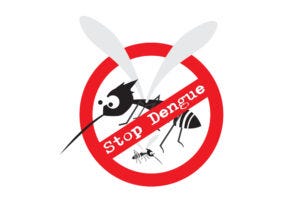
Takeda has opened a €74 million ($82 million) plant in Singen, Germany in anticipation of demand for its recently approved dengue vaccine Qdenga.
Takeda’s production site in Singen had just completed a €130 million expansion in 2020 when the firm laid plans to invest a further €74 million to build a drug substance plant to support the then dengue disease vaccine candidate TAK-003.
The vaccine has recently won approval across various regions under the name Qdenga (Dengue Tetravalent Vaccine [Live, Attenuated]), and the Singen facility opened its doors last week to help feed its demand.

DepositPhotos/sazori
“This was an important step in achieving our goal of end-to-end inhouse production capability for Qdenga by 2025 and achieving an annual supply capacity of around 100 million doses by the end of the decade,” Christophe Weber, Takeda CEO, said during his firm’s Q1 fiscal year 2023 earnings call this week.
“While we ramp up our manufacturing capabilities, we are exploring partnership with vaccines manufacturers, especially in endemic countries to secure additional capacity to meet current and future supply needs.”
He admitted Takeda is “very early in the launch phase” for the vaccine but is encouraged by the high demand coming from numerous markets. The vaccine has won approval in endemic countries including Thailand, Argentina, Brazil, and Indonesia.
“The vaccine’s significant progress in endemic countries underscore its strong clinical data and the urgent need for safe and effective vaccines to prevent dengue fever, which is why we remain laser focused on endemic markets, which make up roughly 80% to 85% of our projected peak sales of $1.6 billion to $2 billion.”
Qdenga has also seen success in travel markets, including the European Union where approval came in December 2022. However, Takeda withdrew its application from the US earlier this month, citing disagreements with the US Food and Drug Administration (FDA) on aspects of data collection.
“In the US, we made a difficult decision to voluntarily withdraw our biologics license application filing due to FDA request for additional data, including data that was not part of the previously agreed upon protocol and which could not be addressed within the current review cycle,” Weber reiterated to shareholders.
“This decision will not affect our overall approach for TAK-003, or Qdenga, which we believe can be extremely effective to limit the public health impact of dengue in endemic countries.”
About the Author
You May Also Like

schedl_b_and_w.jpg?width=100&auto=webp&quality=80&disable=upscale)
schedl_b_and_w.jpg?width=400&auto=webp&quality=80&disable=upscale)



